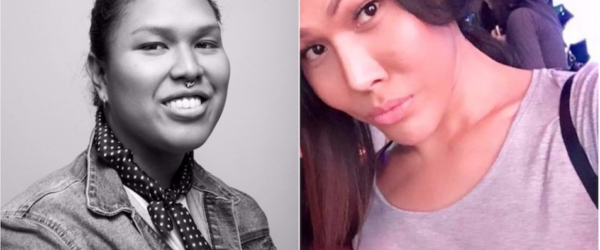Last month on Aug 9, a gay man and a transgender woman from Singapore were arrested in a mall in Abu Dhabi just a day after they arrived for a photoshoot and networking. For the charges of ‘wearing women’s clothes’ and ‘outrageous acts in public’, according to court documents, the two were sentenced to a year in jail – all without even a hearing. The sentence was announced to them by a guard just outside their prison cell.
According to Nur Qistina Fitriah Ibrahim, 37, who goes by Fifi, they were arrested about five minutes after entering Yas Mall. As they rode an escalator to look for a place to eat, they noticed two men in traditional Arab garments calling out to them.
“They kept shouting at us. And I thought, was he asking for us? That’s when Fad turned around. They asked for our ID. The moment the ID was asked for, my heart dropped. They were dressed in their traditional garments. Those in casual wear were the tourists and Asians – it was just us.”
While fashion photographer Fadli Rahman, 26, had removed his earrings and nose ring while going through airport immigration, he was dressed comfortably as himself to the mall. In a similar shirt and jeans combo, Fad had put his accessories back on and swept his hair up in a ponytail.
“Before we came to the mall, I informed Fad that it was a big mall and you could dress [as you wished],” said Fifi. “They had asked for Fad’s ID and he passed as a man, but when it came to me, it was difficult. They were asking whether I was male or female.” Her ID still states ‘male’, since in Singapore the change is only allowed after sex-reassignment or gender-confirmation surgery.
While the rapid arrest and sentencing of the two show “the danger that the LGBT community can face in [the United Arab Emirates],” according to Stuff.co, the constant misgendering of Fifi reveals a systemic denial of the lived realities of transgendered people.
In initial reports about the arrest, the local media (The Straits Times, AsiaOne, The New Paper) referred to Fadli and Fifi as “two men”. As both were wearing shirts and long trousers, the charges of ‘wearing women’s clothes’ could have referred to either Fadli’s earrings and/or the fact that Fifi’s identification states that she is ‘male’.
“Nur is a transgender person who has legally changed the name but has not undergone a sex-change operation to become a woman.” – The Straits Times
In using the term “become a woman”, the newspaper conflates gender with not even sex (as is often done), but the appearance of one’s genitalia. According to this logic, someone can only be accepted as a ‘real’ woman if their genitals resemble those of people assigned female at birth. Considering the fact that in Singapore, anyone (including transgender people) can change their legal name by deed poll, being able to change one’s sex on their ID only after an expensive operation is absurd and unfair.
Even deed polls are racked by such assumptions. Anecdotal evidence suggests that typically masculine names used in ID, such as ‘Muhammad’ or ‘bin’ (meaning ‘son of’) can be rejected in deed polls of transgender men by the government body that handles deed polls.
While detained in three different prisons, Fadli and Fifi were both treated as men. Both had their head shaved. However, that they were separated from the general male population indicates that they were not considered like ‘other’ men. In the third and final prison they were in, Fifi recounts that her five roommates were transgender women and/or gay men. This shows that being gay and transgender were both lumped together under deviant sexual orientations. A man is either cisgender and straight or deviant.
According to Radha Stirling, CEO of the non-governmental organisation Detained in Dubai, “…transgender people are generally categorised as “crossdressers”; as a man who dresses as a woman, or vice versa; which means that the transwoman in this case will be jailed in the male prison because that is what is stated on their passport.”
The three local sources also used various formulations (or perhaps translations) of the charge ‘outrageous acts in public’, such as ‘behaving indecently’ and without the use of quotation marks. According to Fifi, the two of them were only walking in the mall. Does this mean that not being cisgender is in and of itself an ‘outrageous act’?
After almost three weeks of organising and fundraising for a lawyer in Abu Dhabi, spearheaded by Fadli’s activist friends in Singapore, the two of them were released on Aug 28 and deported back to Singapore with a fine of 10,000 AED each. The Straits Times continued to refer to them as “two Singaporean men”, while other local sources changed to the neutral terms “the duo” and “pair of Singaporeans”.
There are other examples from other foreign news sites on how to refer to them in a more accurate way. Stuff.co uses the phrase “A transgender Singaporean and her friend”, SBS Australia uses “A man and a transgender woman”, and Pink News uses “A transgender woman and her earring-wearing friend”.
Most infuriating of all was a Facebook status posted by foreign affairs minister Vivian Balakrishnan, who implied that Fadli and Fifi did not “respect and abide by the local laws” of the UAE. When laws make your very existence a crime, how do you obey them?
Radha Stirling’s article is a sobering statement on the reality facing queer travelers in the UAE, and calls for change to their legislation.
“Dubai, for example, has a significant gay and transgender community including many overtly gay bars [and] clubs. Understandably, this leads the tourist or business-person to believe homosexuality and transgenderism are acceptable. However, homosexuality and transgenderism are serious criminal offences, which will mean a lengthy jail term (…)”
“The gay community around the world and the local gay community in the UAE needs to pressurise the UAE authorities to amend the outdated legislation.”
The experience of the two Singaporeans are a sobering reminder of the privilege that cisgender and straight people enjoy in general and as travellers in particular. Having ID that matches one’s gender markers is a privilege that I did not and not do have to interrogate. The fact that the charges the two of them received make hardly any sense highlights yet another challenge that transgender people face in their daily lives.


